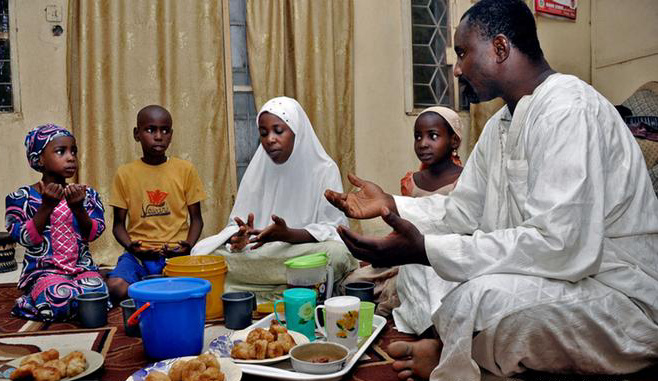In every religion, there are doctrines that an adherent must practice, not just because they are a part of the religion; but also because they boost one’s faith in the religion.
So it is with Ramadan. In Islam, Ramadan is a time to strengthen your faith as a Muslim, and draw closer to Allah. At this time, Muslims essentially fast, eating two meals daily. The first is the Suhoor, taken at the crack of dawn. And at sunset each day, the break their fast with Iftars.
The Iftar is the meal served at the end of the day during Ramadan, to break the day’s fast. Literally, it means “break fast.”Families serve the Iftar at sunset during each day of Ramadan.
Iftars Are More Than Just Dinner, They Are A Social Event
Iftars are very much a social event, most times they involve your family and community. Many Muslims host their friends for dinner or even gather as a community for a potluck dinner. Also, some other Muslims invite others who are not as fortunate and share their dinner with them. In Islam, there’s a reward for charitable giving so many Muslims practice charity, especially during Ramadan.
Muslims traditionally first break the fast with dates and either water or a yoghurt drink. After the Maghrib prayer, they then have a full-course meal, consisting of soup, salad, appetizers and main dishes. In some cultures, Muslims delay the full-course meal until later in the evening or even early morning. Traditional foods also vary by country.
For health reasons, Muslims don’t over-eat during iftar or at any other time; and they follow other health tips during Ramadan. Because you must always take care to get the nutrients, hydration, and rest that you need, Islam makes a concession for those unable to fast. If you decide that fasting could possibly be harmful to your health, you have two options:
- If yours is a temporary, not chronic, condition you may make up the fast (a day for a day) at a later time when your health improves.
- Or if yours is a permanent or chronic condition, you may make a donation to charity in lieu of fasting. The amount should be sufficient to feed one person a day, for each fasting day that is missed.
Practising Muslims follow a halal diet year-round, so the Iftars will never include pork, alcohol, or other forbidden foods.
During Ramadan, common greetings are “Ramadan Mubarak” or “Ramadan Kareem” (meaning “blessed Ramadan” or “happy Ramadan”). Feel free to use these with your Muslim friends, and don’t be nervous if you get it wrong. They’ll still like that you tried.
Nigerian Meal Ideas For Your Iftars This Ramadan
Goat Meat and Plantain Pepper Soup
This is a nice meal to be served at Iftar, while breaking the fast. It is a good source of protein and potassium and the pepper helps to awaken your tired muscles!
Rice dishes with Stew/Sauce
Every Nigerian knows that this is a staple in many homes during Iftar in the holy month of Ramadan. While the rice is a source of carbohydrate, the stew/sauces provide iron, magnesium and also protein, due to the meat/chicken in it. You’ll need to remember that the plan, however, is to take in small portions, so as not to develop a pot-belly due to late-night eating or obesity.
Vegetable or fruit Salads
This is also a good source of iron and loads of minerals. The good thing about it is that you can eat them in slightly larger quantities than the carbohydrates without the fear of developing a pot-belly, as your body very easily digests these.
Masa
This is a traditional food from the northern part of Nigeria. It is essentially rice boiled in oil to give it a distinct taste. Its nutritional value is magnesium, carbohydrates and potassium. Serve this dish with Hausa Spiced pepper and grilled meat.
Fura Da Nunu
This is a Hausa meal made with millet and cow milk. They ferment the milk into a thick constituent. This meal will replenish your family after the fast, giving the much-needed energy and calcium, magnesium and carbohydrate from the millet. If your teenage children are fasting, this is a very nourishing drink that they will enjoy.
Amala, Eba, Fufu with Egusi or Vegetable Soup
You would be familiar with these, as this is is a staple in most Nigerian homes all year round. During Ramadan though, you might want to serve them in small portions and preferably with vegetable soup. Or if with Egusi (grounded melon), a bit of vegetable should be added into the Egusi. They are high in carbohydrates, iron, fats and protein, depending on what meat or fish you use in the soup.
This article was first published on AfricaParent.com
Copyright 2025 TheCable. All rights reserved. This material, and other digital content on this website, may not be reproduced, published, broadcast, rewritten or redistributed in whole or in part without prior express written permission from TheCable.
Follow us on twitter @Thecablestyle

